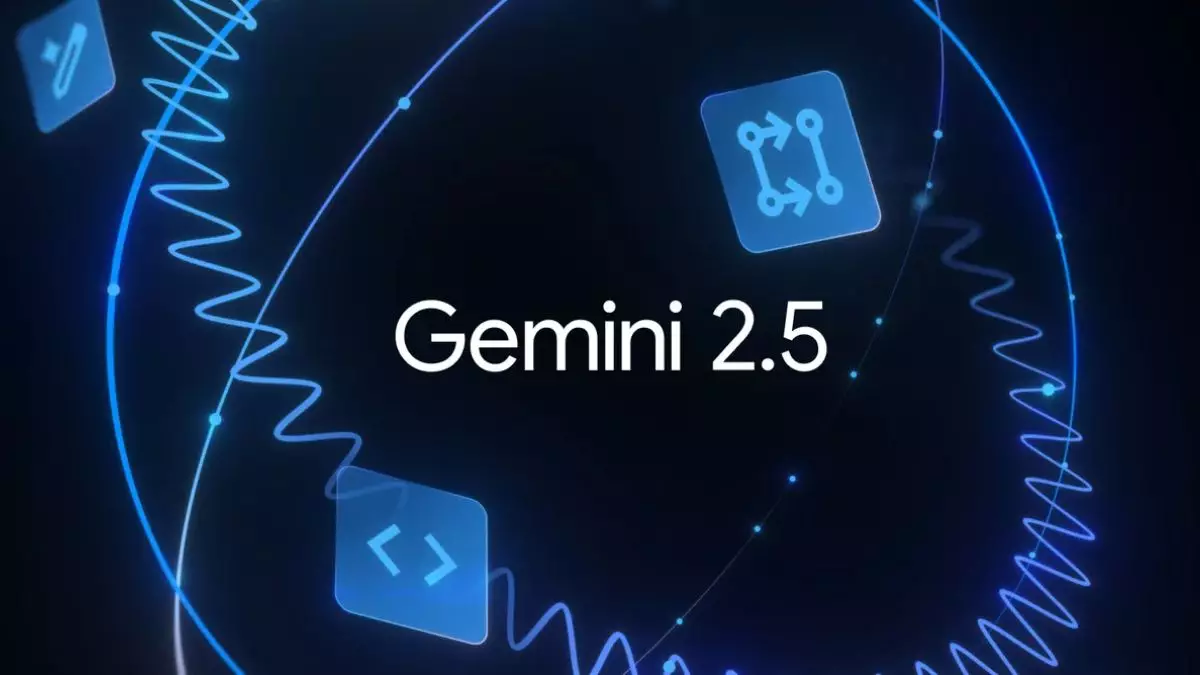On Tuesday, Google unveiled its Gemini 2.5 family of artificial intelligence models, marking a watershed moment in the realm of AI tools. This exciting release allows a broader user base to engage with the Gemini 2.5 Pro and Flash models, moving these once-exclusive technologies into the hands of everyday users. While it’s easy to be swept away by the technological advancements and features, it’s crucial to peel back the layers to reveal the implications of such accessibility.
The decision to make the Gemini 2.5 Pro model available on a free tier sets a significant precedent. On the one hand, this opens doors for budding developers, students, and inquisitive minds to explore advanced AI functionalities without financial constraints. However, the reality is more complex. The free version comes with limitations, underscoring what many may perceive as a “two-tier” system that rewards paying users with greater capabilities. Thus, while the tech giant aims for inclusivity, it inadvertently fosters inequality in AI access based on economic status.
The Dichotomy of Features: Promise and Limitation
The Gemini 2.5 models are not merely iterations but represent a significant upgrade over their predecessors. The introduction of Flash-Lite—a model that Google touts as both ultra-fast and cost-efficient—reinforces the company’s ambitions in AI performance. With capabilities that surpass the 2.0 version in areas such as coding and reasoning, the Flash-Lite model boasts the potential to revolutionize tasks requiring instantaneous outcomes, such as translation and classification.
Yet this promise is not without caveats. Transitioning from a preview to a stable version is often fraught with the hidden expectation of efficiency. Previous models, while impressive, suffered from a variety of operational hiccups—users live with glitches that can cloud experiences. The evolution into a stable framework may seem idyllic, but a skeptical diagnosis would prompt questions about how thorough Google’s testing really was. Are they presenting us with polished gems, or merely improved versions of a flawed product?
A Shaky Balance Between Innovation and Demand
The introduction of models tailored for distinct user needs—such as the segregation of Pro, Flash, and Personalisation Preview—mirrors a growing trend in technology. Companies are increasingly fragmenting their offerings to cater to diverse audiences, creating different tiers for experience based not just on skill, but also on financial commitment. The disparity in daily usage limits between free and paid users raises ethical questions about access to technology: should the depth of inquiry into AI be reserved for those who can afford it?
Moreover, as Google integrates these models with existing services like Google Search, we must scrutinize what this means for privacy and data security. The ability of the AI to analyze personal search history to provide tailored responses exemplifies a double-edged sword. While it enhances user experience, one must wonder about the ramifications of allowing an AI system to track, analyze, and potentially misuse personal data. The line between user convenience and invasive tracking is increasingly blurry, and it must be carefully navigated.
Embracing the Complexity of AI Innovation
One cannot ignore the impact that Google’s latest offering could have on education, research, and even workplace dynamics. As these models grow in sophistication, they provide powerful tools for learning and creating. The potential for democratizing access to high-end AI could foster innovation in ways we have yet to fully comprehend. This could inspire the next generation of engineers, writers, and scientists to explore new realms of possibility.
However, with great power comes significant responsibility. Companies like Google must act ethically and transparently, acknowledging the power dynamics that get play when technology development skews towards profit. The allure of cutting-edge AI is undeniable, yet we must remain vigilant against a growing trend where such technology is viewed merely as a profit-generating entity rather than a tool for collective progress.
Google’s Gemini 2.5 models stand at a pivotal intersection, showcasing both remarkable advancements alongside uncomfortable truths about access, privacy, and the ethical use of technology. The road ahead is murky, but the importance of fostering a fair and equitable tech landscape cannot be overstated. The conversations we engage in today will shape the foundations of tomorrow’s AI-driven world.


Leave a Reply